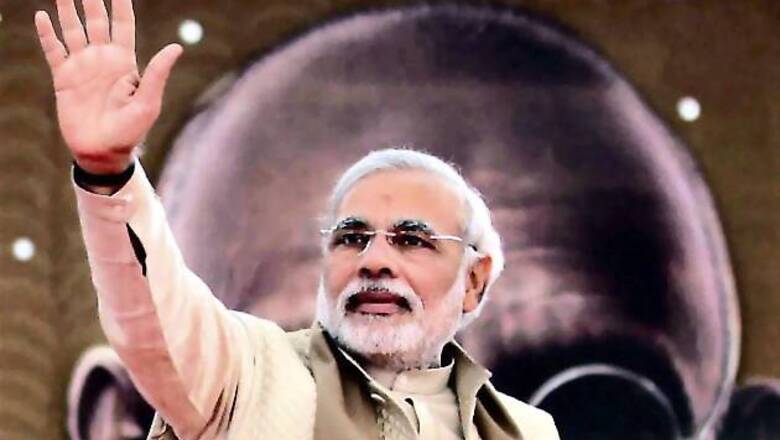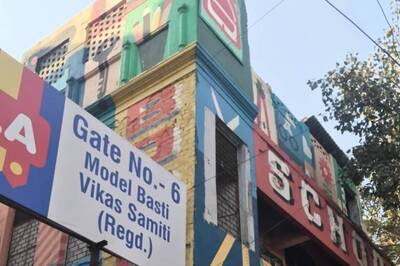
views
The rule of law is not same as the rule by law. There is a wide and vast difference. The absolutists believed themselves to be agents of the almighty on earth to ignore all restraints on their use of power. They ran exploitive or extractive political and economic institutions in aid of the exclusive class, the elite around them standing to keep in them in seat of power. From the 17th century to the middle of the 20th century, they ran such exclusive domains.
Their rule came to end after the World War II to bring in popular governments in most parts of the world though royalties survived in few but as the constitutional appendages. Hopes that most countries would introduce the rule of law were belied. Most elected leaders preferred to rule by law and not introduce the rule of law as they also did not give up their exclusive right to make choices.
In six decades of the post independence era, India saw the rule by law for decades. Jawaharlal Nehru made choices of the political and economic institutions under the authority vested in him by law. He desired to build India into a modern and liberal state of his choice and excluded the over whelming majority by adopting industrialisation as the route for planned economic development. He ignored two thirds of India engaged in agriculture or allied vocations.
Indira Gandhi adopted the rule by law as her dire necessity to save her seat in first instalment and to save her power in the second tranche. Rajiv Gandhi was in hurry to reach the 21st century but without defining goals as to who would be on his band wagon. PV Narasimha Rao opened the womb of the Indian economy for foreign forces to trample over. His regime did achieve unprecedented growth pace but only for a minority. Even he had to admit in the last year that human face was missing from his model of economic development.
As Arjun Sengupta noted the difference between the high incomes and the low incomes was as much as of 5500 per cent points. For the rest of period, wrestlers of different concepts turned politics into a boxing ring. Now 13 per cent of the population controls as much as 38 per cent of national assets.
The next election to the Lok Sabha is fast approaching. The trend of campaign indicates that it would not be a clash of ideas or ideologies. It will be a politics of boxing bouts without rules that govern the boxing match. It will be no holds barred between two main boxers.
The Bharatiya Janata Party has pushed forward Gujarat Chief Minister Narendra Modi as its champion in the ring. He spares no mean punch at his only opponent, or so he believes to be, the Congress leader.
Rahul Gandhi has not stepped into the ring officially. He desires to create an impression that he was not in politics for power. But his words cannot hide it. He generally uses the pronoun "We" to applaud achievements of the Congress led government. But his use of pronoun we does not include us means others. We is only synonymous for his family. He never misses to eulogize sacrifices by the family to push the country to where reached - mired in the economic crisis, two thirds of Indians starving (his mother Sonia Gandhi claims so through her scheme of Food Security) and the government paralysed due to loss of power as it resides outside the Prime Minister's office.
Can his eulogy of the family cut ice with new generation of young voters who constitute 54 per cent of the electorate? For a majority of them Indira Gandhi and Rajiv Gandhi are only a page of history. Rahul does not reveal his social and political ideology. His economic thoughts are more confused than his mother's. He endorses his mother's economic route of welfare and supports the economic reforms route that the Prime Minister insists on taking.
Narendra Modi had a brilliant idea in his declaration of his priority of toilet before the temple. The idea denotes a complete transformation of dynamics of rural economies because toilet cannot stand alone. It would need flowing water to flush them so villages would have water supply in their vicinity. It would lead to planned disposal of effluence to obtain bio gas and manure.
Women would not suffer smoke while cooking as they do now due to use of tweaks and peats inside their hovels. Trees would be saved as fuel needs would be met with a different medium. It would protect environment around with probable growth of greenery. It is a fact though not stated satisfactorily that greenery results in heavy rains and heavy rains cause forests. It is established fact world over.
Before he could elaborate his idea he was forced to abandon it as his priority led to howling in the Sangh Parivar. He went back to his theme of rule by law by encouraging industrialisation. His concept engenders massive support from the corporate world. It can provide resources but not votes. The open association with them signals a wrong message of his preference for exclusive political institution to serve exclusive economic interests. It includes only urban areas and needs of rural areas get pushed out.
Thus his industrialisation concept for rapid growth turns into creating the exclusive subset of urban elite that would be attended to and nurtured in his regime.
Naturally many would dispute that rural population can be so articulate to read clear messages emanating from what the two boxers, Narendra Modi itching to get power and punch and Rahul Gandhi reluctant to enter the ring directly but is still throwing his punches, are presenting as their agenda. Indian voter may be illiterate (nd now, they are not illiterates as the literacy rate has climbed 72 per cent. If 10 per cent of old and 8 per cent of not school going age are excluded, number of illiterates comes down to only 10 per cent but they are not without common sense. They can see which side is butter on the slice. They know that if the buttered side of the fallen slice is up, it is not a miracle. Generally it is believed that buttered side of the fallen slice from hands of a poor ends up in mud.
The bout between the two has generated enough hype in media and interest in the middle class over its outcome. The rural masses of deprived lot are not impressed because neither serves their aroused passions for a share in power. Neither has opened their doors to accommodate them. Throwing crumbs at them would not satisfy them for their hunger is not for roti for their children but for their empowerment. Neither has proposed any reform measures to reach benefits of economic development closer to their hovels. Unless they are able to address to their needs, they would prefer neither of them as they have alternative choices available near their homes. Personalities without ideas that catch public fancy have never won the public endorsements. On any part of the world, history and historians tell us.




















Comments
0 comment